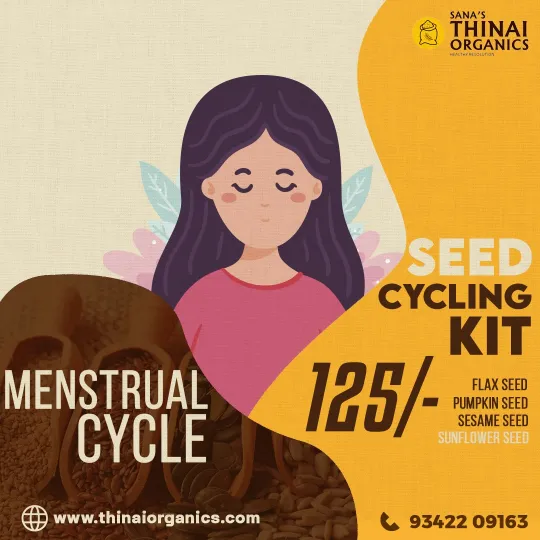Seed cycling
Seed cycling explained
Written By : Saranya Rajendran
Seed cycling is a natural approach to hormone balancing that involves consuming specific types of seeds at different times of the menstrual cycle. The theory behind seed cycling is that certain types of seeds contain compounds that may help support hormone production and balance. Proponents of seed cycling believe that consuming these seeds can help regulate the menstrual cycle, improve fertility, and reduce symptoms of menopause, PMS, and other hormone-related conditions.
The most common seeds used in seed cycling are flax seeds, pumpkin seeds, sunflower seeds, and sesame seeds. Flax seeds and pumpkin seeds are typically consumed during the first half of the menstrual cycle (days 1-14), while sunflower seeds and sesame seeds are consumed during the second half of the cycle (days 15-28). The specific dosage and timing of seed consumption may vary depending on the individual and their specific health needs.
It is important to note that seed cycling is not a scientifically proven treatment for hormone-related conditions and there is limited research on its effectiveness. As with any dietary or lifestyle change, it is important to speak with a healthcare professional before starting seed cycling or making any significant changes to your diet or routine.
/*! elementor – v3.11.5 – 14-03-2023 */ .elementor-widget-image{text-align:center}.elementor-widget-image a{display:inline-block}.elementor-widget-image a img[src$=”.svg”]{width:48px}.elementor-widget-image img{vertical-align:middle;display:inline-block}
